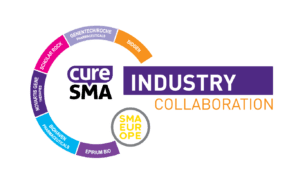In recent years, the FDA-approval of three new SMA treatments has made it possible for a growing number of affected individuals to receive disease-modifying drugs. In addition, many more potential SMA treatments are being studied in ongoing clinical trials, either alone or alongside approved treatments. This rapid increase in SMA research has made it more important than ever for SMA healthcare providers and researchers to have the most up-to-date information on how to conduct the highest quality SMA research.
Physical therapists play many important roles in SMA research, such as assisting with trial design, determining which are the most useful treatment outcomes to measure, and analyzing data. However, many physical therapists who work with individuals affected by SMA practice in community settings that are not connected to the SMA Care Center Network or other specialty neuromuscular disease clinics. These physical therapists may not have the resources they need to fully understand SMA and how to best conduct clinical trials for new SMA treatments.1
To make these resources accessible to all physical therapists, healthcare providers, and researchers, Cure SMA created the Clinical Trial Readiness Program. The program was developed as part of the Cure SMA Industry Collaboration (SMA-IC), in cooperation with experts in the field, Drs. Kristin Krosschell, PT, DPT, MA, PCS (Northwestern University) and Sally Dunaway Young, PT, DPT (Stanford University). These resources were designed to support effective, patient-centered management of SMA clinical research and patient evaluation. Drs. Krosschell and Dunaway Young describe the process to devise, distribute, and evaluate the impact of the resources for physical therapies in the recent publication, “Clinical research readiness for spinal muscular atrophy: The time is now for knowledge translation.”1 This article was published in the peer-reviewed journal, Physical Therapy and Rehabilitation in July of 2022. A podcast describing these efforts is also available on the APTA Journal website.
How We Did It
To initially identify gaps in knowledge about SMA clinical care and research, the authors reviewed evidence-based research articles and summarized the most important findings. They also asked other SMA healthcare providers and researchers for their perspectives. With this information, the following resources were created:
- The clinical evaluator needs assessment is a tool for measuring how prepared physical therapists are to conduct clinical trials for SMA treatments.
- The SMA Best Practices for Physical Therapists and Clinical Evaluators in SMA toolkit contains background information about SMA, as well as potential SMA treatments that are currently in the clinical trial pipeline. It also describes the SMA clinical care and research “best practices,” which are guidelines for how to provide the most current and appropriate clinical care and conduct the most effective clinical trials.
- Online webinars and in-person workshops build on these materials to help principal investigators, clinical research coordinators, and physical therapists design and conduct clinical trials for SMA treatments.
What We Found
The authors assessed the impact of the program in several ways. First, they noted that between December 2019 and April 2021, the toolkit was downloaded by 191 physical therapists and other persons involved in healthcare and clinical trials. Second, they collected feedback surveys from several people who had downloaded the toolkit. Third, they received input from workshop attendees who completed evaluations at the end of the course. And finally, the authors directly engaged in conversations with workshop participants.
Why it Matters
Conducting clinical trials requires expertise and resources that are not readily available in many community healthcare settings. Cure SMA and its partners in industry, healthcare, and research created the Clinical Trial Readiness Program to increase the number of well-prepared, patient-centered SMA clinical trial sites. Increasing the number of clinical trial sites will make SMA research participation an option for more SMA-affected individuals, accelerating the progress of treatment research. In turn, the Cure SMA Clinical Trial Readiness Program may serve as a model for other rare disease communities that want to accelerate treatment research.
Special thanks to Kristin Krosschell and Sally Dunaway Young for their invaluable contributions to the development of the Clinical Trial Readiness Program.
About the Cure SMA Industry Collaboration

The Cure SMA Industry Collaboration (SMA-IC) was established in 2016 to leverage the experience, expertise, and resources of pharmaceutical and biotechnology companies, as well as other nonprofit organizations involved in the development of spinal muscular atrophy (SMA) therapeutics to more effectively address a range of scientific, clinical, and regulatory challenges. Funding for this research was provided by the SMA-IC; the members of the SMA-IC at the time the work was completed were Cure SMA, Astellas, Biogen, Cytokinetics Inc, Genentech/Roche Pharmaceuticals, Novartis Gene Therapies, and Scholar Rock Inc.
- Krosschell KJ, Dunaway Young S, Peterson I, et al. Clinical and Research Readiness for Spinal Muscular Atrophy: The Time Is Now for Knowledge Translation. Phys Ther. 2022;102(10).



